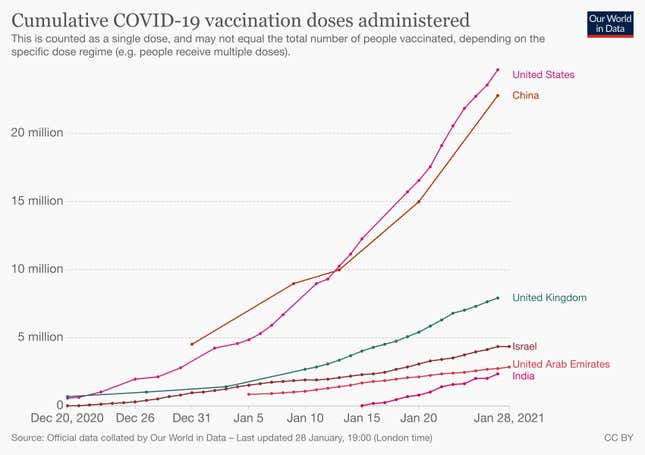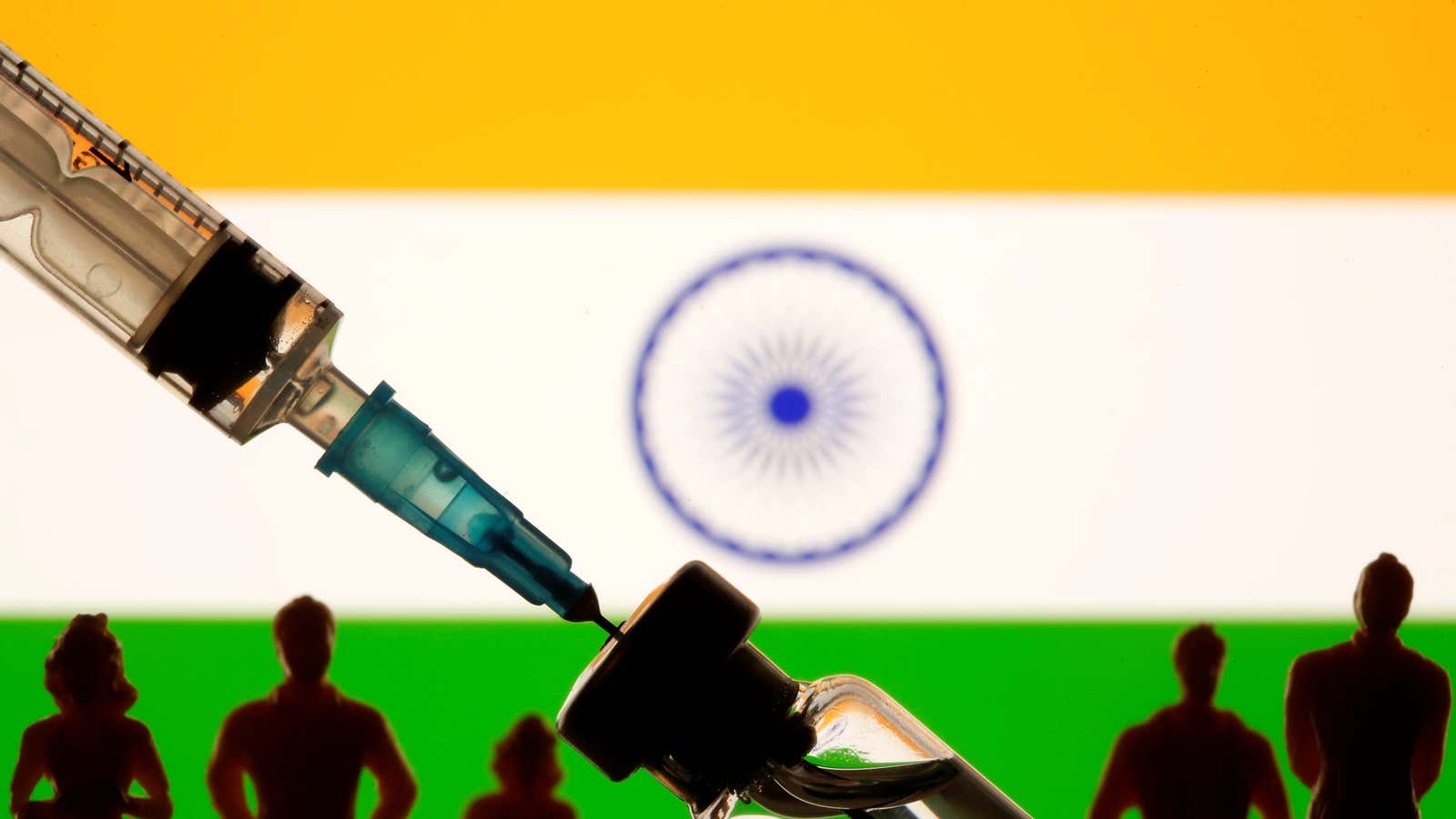India’s Covid-19 story is panning out in two directions currently. The number of active and daily new cases are trending downwards, and the vaccines administered are charting upwards.
Thirteen days into the vaccination programme, the country has inoculated 2.9 million frontline and healthcare workers against the novel coronavirus. India has seen over 10 million Covid-19 cases and over 150,000 people have lost the infection.
The government has identified 30 million essential workers to vaccinate in the first phase, but the drive has been slow to pick up because of vaccine hesitancy and technical glitches. It also plans to vaccinate a total of 300 million Indians by August, focusing on vulnerable groups of people aged over 50, and those with comorbidities.
For that to happen, India will need to pick up pace in the coming days and weeks.

The first aspect that needs urgent attention is vaccine hesitancy, which the government could overcome with more transparency over the vaccines.
More information about Covishield and Covaxin
India had approved two vaccines—Serum Institute of India’s Covishield and Bharat Biotech’s Covaxin—on Jan. 3 for emergency use in the country. At the virtual World Economic Forum, prime minister Narendra Modi said yesterday (Jan. 28) that in the future, there will be many more made-in-India vaccines.
Of the two vaccines currently in use in the country, Covishield, which is manufactured using the Oxford-AstraZeneca master seed, has some efficacy data based on trials abroad. Covaxin is still conducting its third phase of human trials.
The hesitancy against both the vaccines has persisted despite the government’s efforts to bolster people’s confidence around it. Besides the lack of trial data, the adverse events following immunisation (AEFIs) have got vaccine beneficiaries worried about the safety of the jabs.
Nine people who received the Covid-19 shots have also died in India. Initial reports suggest that these deaths are unrelated to the vaccines, but detailed studies are yet to be done.
Meanwhile, accredited social health activist (Asha) workers have been protesting in the southern state of Andhra Pradesh after one such worker’s death post vaccination. The protesters have demanded that the deceased Asha worker’s family be given Rs50 lakh ($68,554) as compensation, even as initial studies claim her death was unrelated to the vaccine.
“The government must immediately disclose all details of the investigations into these serious Adverse Events Following Immunisation and any action taken,” medical ethics researchers Sandhya Srinivasan, Amar Jesani, and Veena Johari wrote in Scroll.
